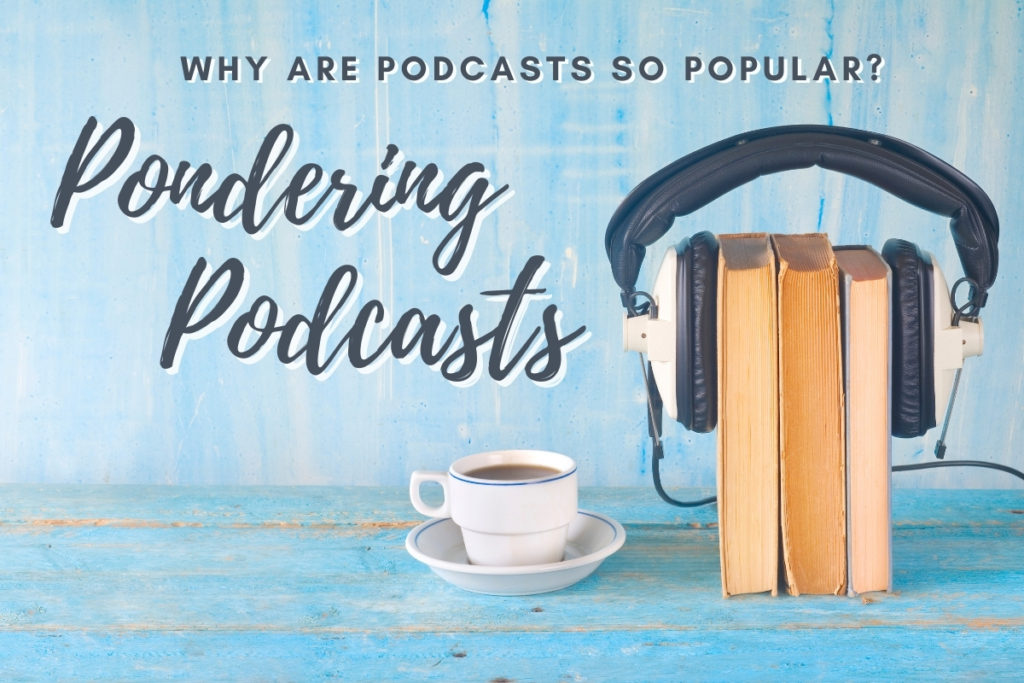
Pondering Podcasts
Why are podcasts so popular?
This all started, again, when I was getting ready to head to the lake. This is Manitoba lingo for leaving the city (Winnipeg in my case) and heading to a recreational spot for some summer fun (weekend at a cottage). Having a few hours alone in a car, I thought that perhaps I should listen to a podcast or two. Which prompted the question of which podcasts to listen to, which led to a feeling of being overwhelmed by too much choice, indecision and some technical barriers. I said “again” earlier, because this is a monologue that I seem to have with myself on a somewhat frequent basis. In the end I did not listen to podcasts on this or several subsequent trips to the lake. But I did spend some time on the road pondering podcasts and wondering why are podcasts so popular.
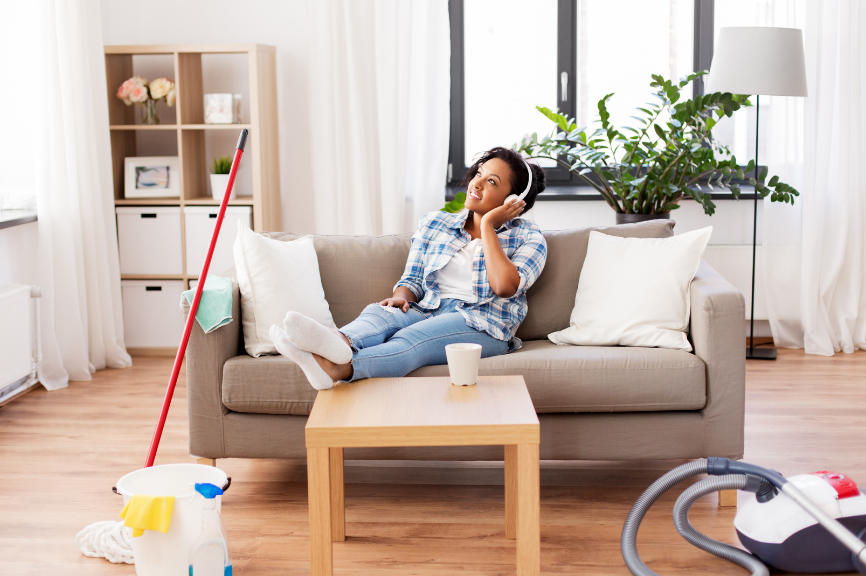
Some background research
Answering the question obviously required a little research. An internet search brought up some predicable answers about why podcasts are so popular. Some of the top ten results on Google were by websites which sell podcasting courses. They obviously also know a thing or two about search engine optimization.
One post from earlier this year caught my eye however, since it provided data on how the percentage of adults who listen to podcasts is growing, perhaps due to the pandemic, although who really knows. And actually, the numbers are not exactly amazing. New question: are podcasts really so popular?
But I digress. Back to the research. After the usual things about their “convenience” AKA how you can multitask and listen while doing other things – which I have opinions on, see below – some other ideas resonated.
Podcasts also allow listeners to educate themselves without needing to spend lots of money. In 2020, the world shed the spotlight on social issues. Shows allowed people to learn more about these topics or hear a broader range of voices—or listen to people with similar opinions.
I believe that broadening your mind is a really good thing, so if podcasts can do that, all the better. However, I harboured a suspicion that this did not always or even frequently happen since we often stick to the things that we know.
Time for a different kind of research. Very scientific. I talked to friends at the lake. Now admittedly some of the research was conducted while floating on a pink flamingo, so rigorous academic scientific standards were not fully applied. But I did learn some things. There include:
- A lot of people are overwhelmed by the sheer volume of podcasts and struggle with what to listen to. I know what you mean.
- Others find it hard to find the time. Road trips seem to be a favourite for when to listen (maybe we do more highway driving in Manitoba given our geography than other places?). Agreed.
- People are eager to learn. It is less about being entertained and more about gaining insights and knowledge. But hey, something amusing is always good, especially in a pandemic. Check.
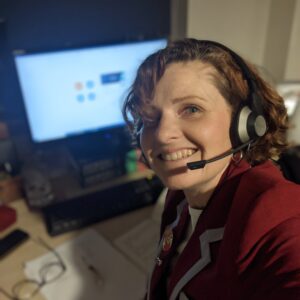
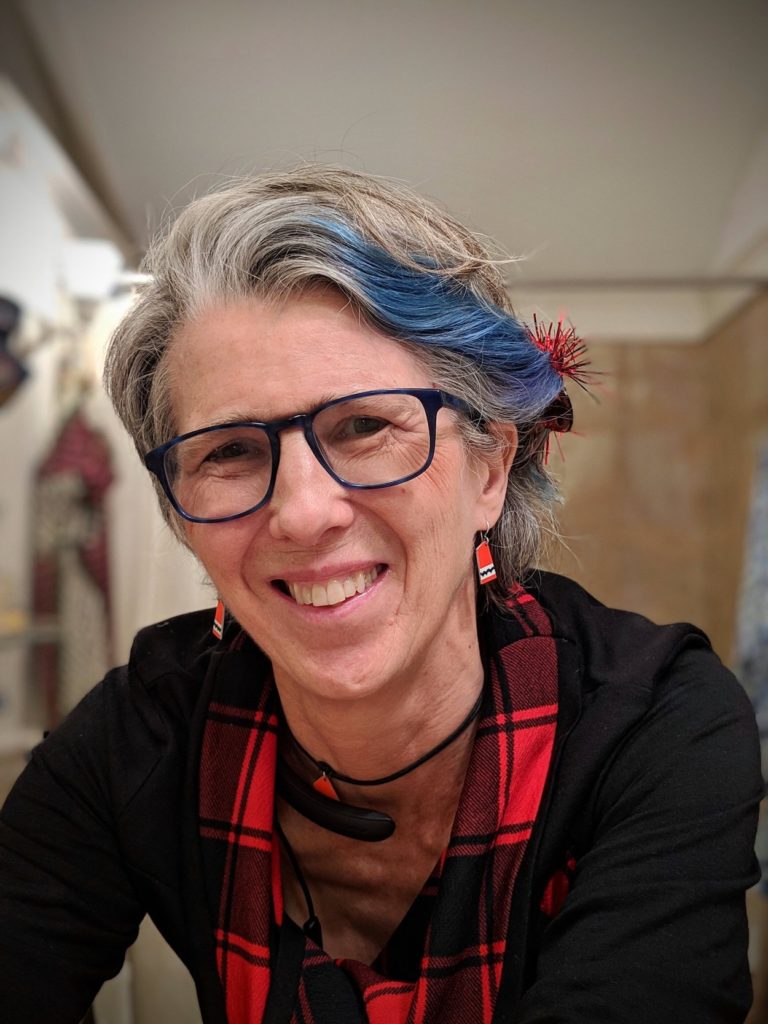
The example of rowing podcasts
The next stage of the research into why are podcasts are so popular was to connect with some of my friends who have podcasts. Again, this may reflect my age and naivete, but I find it remarkable how many rowing podcasts there are. I should have known, since I did tune in to Steady State Network as part of my writing the Women in Rowing Businesses post. This led to another question about whether podcasts are favoured by niche topics as opposed to general topics like “business”. I could not find a clear answer to this, whether on the internet or from my perch on the flamingo.
There must be at least 20 rowing focussed podcasts. Part of me thinks that this is amazing and positive. Part of me also wonders who has time to listen to all this information. I know and respect some of those rowing podcasters, so I asked a few some questions.
Charlotte Pierce of Ready, Row USA! shared insights about what it takes to have a podcast. “The barriers to entry and cost of production are low and distribution is easy because the podcast apps are hungry for content.
“Of course to get subscribers, you can pour a lot of money into advertising, distribution and promotion. The challenges include building an audience and all the things that accompany that, social media, branding, etc.
“Sponsors start paying when followers and subscribers reach the point where they realize an investment in advertising on the podcast would pay off. On the business side it’s kind of fun to figure out that puzzle.
“Also there’s a kind of freedom and intimacy to non-visual audio. People tend to say things they might not say in a more formal video setting.
“That said, I usually go with a live stream video and distribute the audio later. I feel like that gives an extra product of sorts, something that can be clipped and used to visually promote the podcast.
“For my own podcast consumption, I periodically post a request for suggestions and people are more than happy to give you theirs. I always end up with a lot of good suggestions. And I keep my ears to the ground in all the topic areas that I’m interested in usually someone’s doing a podcast about one of them.
“The reason I love doing this format is that I get to raise awareness about things that I care about, rowing; independent publishing; and alternative education for starters. My podcasts are at piercepress.com/podcasts, and I use the blog that you’ll find there as a way to drive more traffic to my own website, the books I publish and the publishing services I provide.
“But mostly because I’m not raking in the millions just yet, I just love getting the word out about people and subjects that I believe in. I like finding cool and humble people doing innovative, interesting, and offbeat things in their fields, giving them some visibility. An example of this is a podcast for Ready Row USA that I’m planning for September, around gadgets and gear including the remote coxswain that helps blind people scull on their own, and my series on rowing club spotlights which hops around the country finding wonderful little and not so little rowing clubs. It’s fun to shine the light on them.
Without that, it would just be another product.”
Patricia Carswell lives in Great Britain and is entering her third season of her podcast Girl on the River, building on the success of her popular blog site of the same name. “I love the deep dive into the world of the guest that you get in a podcast, and the sometimes unexpected things that come up. I’m already a massive fan of audio – I’m a bit of a radio addict – so podcasting is a wonderful tool for interviewing, and I love the conversational feel of it.
“Girl on the River is, at its heart, a rowing podcast, so I’m always keen to hear from amazing rowers, whether they’re Olympians, Atlantic rowers or people making a difference in the world of rowing. I’ve been lucky enough to have some incredible figures from the rowing world joining me on the podcast, which has been a huge honour.
“Beyond that, there are various issues that I’m keen to talk about, in particular mental health, the environment (especially river health) and DEI (diversity, equity and inclusion). At the beginning of each season I have an idea of the themes I’d like to address and I invite some guests on that basis.
“In the first season, for example, I was particularly keen to focus on mental health and sport. I invited a young rower whose brother had taken his own life, to talk about his brother, the problems young men can face and the fundraising he has been doing. I also invited an eating disorders expert from Loughborough University called Dr Carolyn Plateau. I had hoped to get the athlete Colin Jackson on to talk about eating disorders as well, but unfortunately he was too busy with Dancing On Ice. Next year, maybe!
“For my forthcoming third season I’m really hoping to talk more about diversity and inclusion, and have a few ideas for possible guests (there’s one I’ve been basically stalking for six months, though haven’t yet persuaded him on to the show!)
“Finally, I invite suggestions from my listeners as to who they’d like to hear on the podcast. A good few of my guests have been requested by listeners – I love having that two-way street!”
I am starting to get it. It is about passion and what you love. About conversations. And about exploring interesting people and topics. I almost forgot. I have been the featured guest on a podcast with Rebecca Caroe of Rowing Chat. Worth listening to for the full 43:02 minutes while driving to the lake. Or cooking dinner.
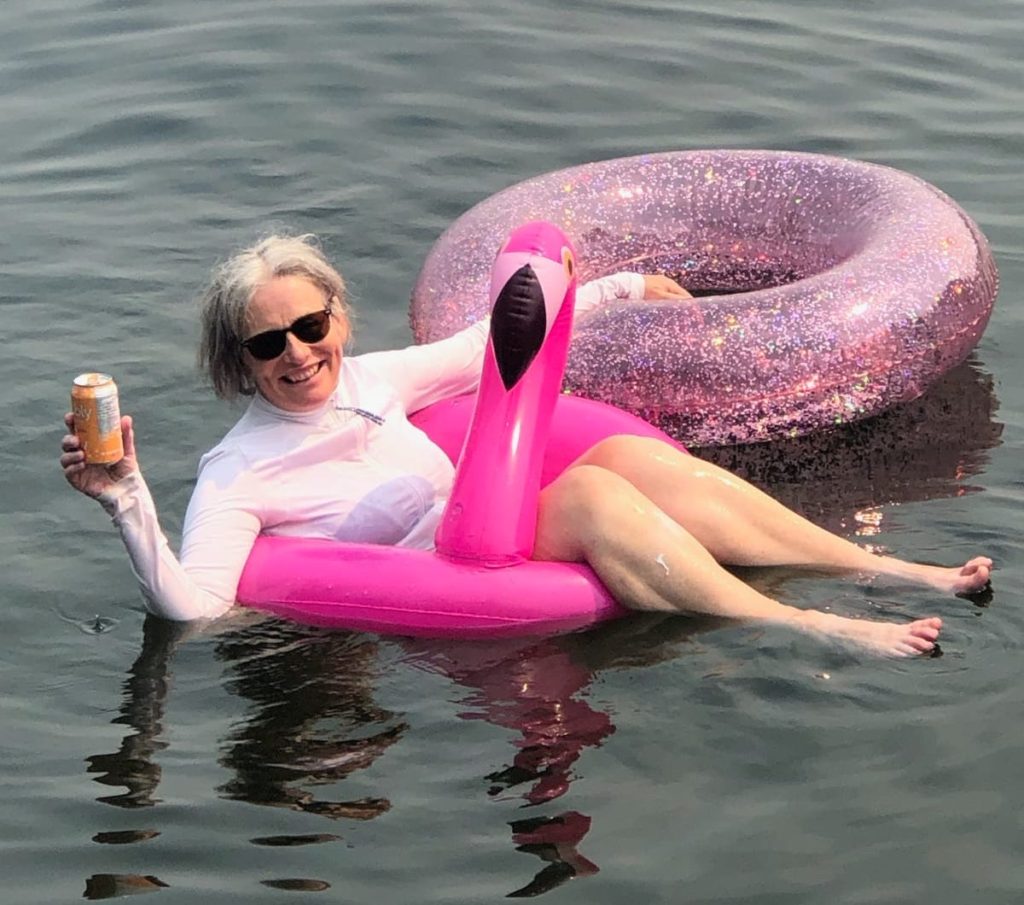
The answer to the question
So, why are podcasts so popular? Many Google search results and some people talk about how you can listen to podcasts while doing other things. Learn while otherwise engaged! Gain information without reading! Fill that time walking outside with words! Don’t take a break! Stop, that seems exhausting.
Okay, maybe my real question is about why do people multi-task. I now understand podcasts much better and have enjoyed those that I have listened to. In fact, I got so much out of hearing a few episodes of How I Built This by Guy Raz that I got his book out of the library and read it cover to cover. Wait. Maybe I have not quite fully embraced podcasts. It does not matter. To each his own, and after much pondering podcasts, I have concluded that so long as we are learning, thinking and conversing, all the better. I need another trip to the lake, this time listening to some podcasts. The flamingo is calling. I wonder if there are podcasts about flamingo floating?